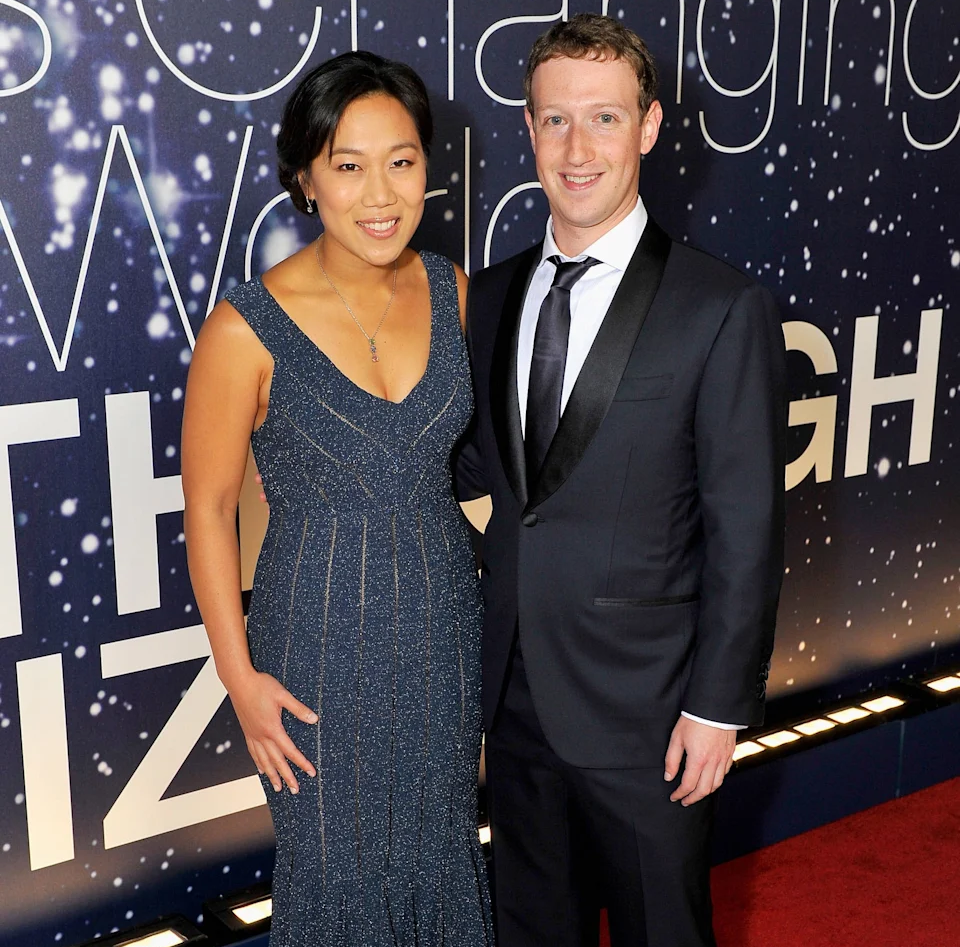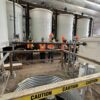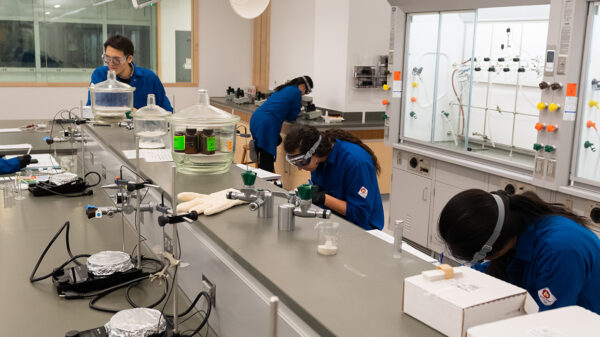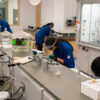Mark Zuckerberg and Priscilla Chan have launched a sweeping new initiative that merges artificial intelligence and biology to accelerate the fight against human disease.
Developed through the Chan Zuckerberg Biohub, the project aims to use cutting-edge computing and biological science to better understand how the human body works. The Thursday announcement also indicated that this initiative would help medical professionals understand how diseases can be prevented, treated, or even cured.
Since its founding in 2016, the Biohub has become known for its groundbreaking approach to biomedical research. Its scientists and engineers have created some of the world’s largest single-cell datasets and developed computing systems dedicated to biology. Now, the organization plans to harness the latest advances in AI to push science forward at an unprecedented pace.
Zuckerberg said that when Biohub began, its goal was to help scientists cure or prevent all diseases this century. He believes that AI could make that goal achievable far sooner. He emphasized that accelerating scientific discovery represents the most meaningful contribution he and Chan can make. For this next chapter, the Biohub will focus entirely on AI-driven biology.
The Biohub is bringing in the team from AI research lab, EvolutionaryScale, to lead the research. The company’s co-founder and chief scientist, Alex Rives, will join as head of science. Rives is known for pioneering AI language models for biology. He is also an assistant professor at the Massachusetts Institute of Technology (MIT) and a member of the Broad Institute. He will continue to collaborate with both institutions while guiding Biohub’s integrated research strategy.
Read more: Breath Diagnostics opens Respiratory Innovation Summit with captivating presentation
Read more: Breath Diagnostics now offering a compelling investment opportunity
Combined teams working on new data sets
Rives said advances in AI are already transforming how scientists understand and engineer biology. By combining AI’s ability to analyze massive data sets with frontier biological research, he believes it will soon be possible to create predictive models of how living systems behave.
The combined Biohub and EvolutionaryScale teams will focus on creating new datasets, laboratory tools, and AI models to support next-generation biological discovery. To power this work, Biohub will expand its compute capacity tenfold — growing to 10,000 GPUs by 2028. This boost will support large-scale modelling and data generation needed to simulate biological systems with increasing accuracy.
The organization has also defined four major scientific goals. The first is to develop a unified AI-based model of the human cell, designed to predict how cells function. The second aims to advance high-resolution imaging systems that visualize biological processes in real time. The third challenge focuses on building tools to track and regulate inflammation. The final goal seeks to use AI to reprogram the immune system for disease prevention, early detection, and treatment.
Chan, who worked as a pediatrician at the University of California, also recalled treating children whose conditions remained scientific mysteries.
“What I wanted more than anything was a way to see what was happening inside their cells — how genetic mutations were expressed in different cell types and what, exactly, was breaking down,” said Chan.
“Until now, that kind of understanding has been out of reach. AI is changing that. For the first time, we have the potential to model and predict the biology of disease in ways that can reveal what’s gone wrong and how we can develop new treatments to address it.”
Read more: Breath Diagnostics pioneers novel lung cancer breath test
Read more: Breath Diagnostics onboards new president and closes critical financing
Systems could make decades of discoveries in months
The Biohub calls this next phase “AI-powered biology,” a field where virtual models of living systems can be tested digitally before experiments move to the lab.
The idea is that as AI models of biology grow more sophisticated, scientists will be able to run simulations that once required years of lab work.
By representing molecules, cells, and even organs in digital form, AI can answer scientific questions faster and more accurately. Researchers can use these models to simulate drug interactions, genetic mutations, or disease progression, saving years of trial and error.
In addition, the Biohub is building AI systems capable of analyzing and synthesizing scientific knowledge from across disciplines.
Zuckerberg and Chan envision a future where these systems make decades of discoveries in months. Further, they believe AI could lead to breakthroughs in early disease detection, programmable cell therapies, and personalized gene editing.
To showcase its early progress, the Biohub announced two major developments. The first is the Virtual Immune System, an ambitious model designed to simulate the human immune response. Furthermore, researchers hope this system will reveal how immune cells interact, how therapies are improved, and how diseases might be prevented.
The second milestone involves the release of three new AI models on Biohub’s virtual cells platform. The first, VariantFormer, translates personal genetic variations into tissue-specific gene activity patterns. The second, CryoLens, provides large-scale analysis of cryo-electron tomography (cryoET) images, a technique capturing biological structures at near-atomic resolution. The third, scLDM, can generate synthetic single-cell data at unmatched fidelity, helping researchers fill gaps in biological datasets.
Read more: Breath Diagnostics gives the public the chance to join the fight against cancer
Read more: Breath Diagnostics takes aim at lung cancer with One Breath
AI is already shaping scientific work
Biohub plans to keep all its datasets and models freely available to the scientific community. Chan and Zuckerberg have long argued that open access to research data speeds up discovery and helps level the playing field between large institutions and smaller research groups. The organization will also continue collaborating with partners worldwide to ensure its advances benefit researchers everywhere.
AI is already reshaping how scientists work, but its potential in biology may be transformative. If the Biohub’s vision succeeds, AI could unlock a new era of “virtual biology,” where scientists model entire systems of the human body before performing a single lab test.
Rives said this convergence of computing and biology could redefine how we understand disease. By teaching AI systems to reason about biology, researchers may uncover solutions to health challenges that have remained unsolved for decades.
Zuckerberg added that this new initiative represents a pivotal moment for science. He said that bringing together AI and biology could accelerate the most important discoveries of the century.
Biohub’s work sits at the intersection of technology, health, and philanthropy, continuing the couple’s long-term vision to make scientific research faster and more collaborative. Additionally, their commitment to free data access and global cooperation echoes earlier open-science initiatives from tech companies like Alphabet Inc. (NASDAQ: GOOG) and Microsoft Corp. (NASDAQ: MSFT), which have also invested in AI-driven health research.
Read more: Breath Diagnostics leaders promote their mission at Miami investment conference
Read more: Breath Diagnostics leader speaks at lung cancer education event in Louisville
Artificial intelligence goes beyond cellular diagnosis
This growing convergence of artificial intelligence and healthcare extends well beyond the Biohub’s philanthropic mission. Across the tech spectrum, several companies are equipping physicians, oncologists, and researchers with AI-powered tools that go beyond cellular analysis, enabling the detection, location, and monitoring of existing diseases such as lung cancer.
One company at the forefront is Breath Diagnostics, which combines AI algorithms with a patented microreactor to analyze volatile organic compounds (VOCs) in exhaled breath. This approach allows for early detection of lung cancer by identifying chemical biomarkers that precede traditional imaging or biopsy findings. Machine-learning models further interpret these breath samples, giving physicians faster and more accurate insights, potentially improving outcomes and reducing unnecessary procedures.
Another significant player is Tempus (NASDAQ: TEM), which uses AI to integrate clinical and molecular data to guide oncologists in creating personalized cancer treatments. Further, by analyzing vast amounts of patient and tumor information, Tempus helps physicians determine which therapies are most likely to succeed for individual patients.
Other innovators, though privately held, are making strides in similar areas. PathAI leverages machine learning to assist pathologists in interpreting biopsy samples with greater accuracy and consistency, while Aidoc develops AI systems that analyze medical images in real time, alerting radiologists to conditions like strokes or embolisms. These technologies demonstrate AI’s capacity to reduce human error, accelerate diagnosis, and provide actionable insights in time-sensitive clinical situations.
.













